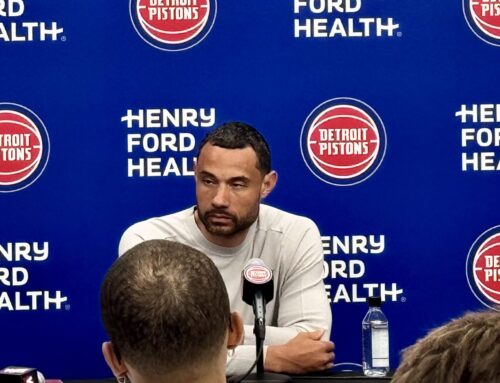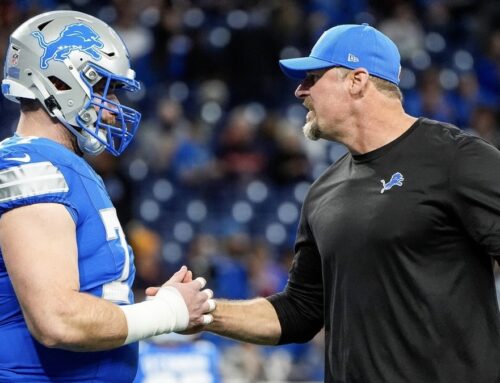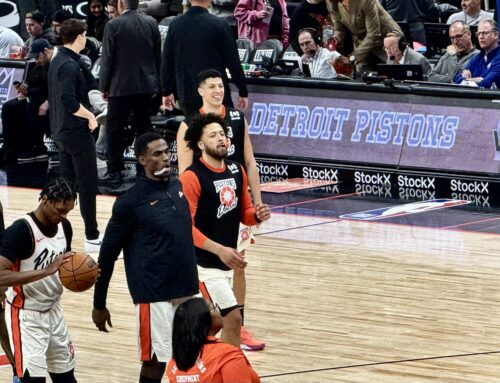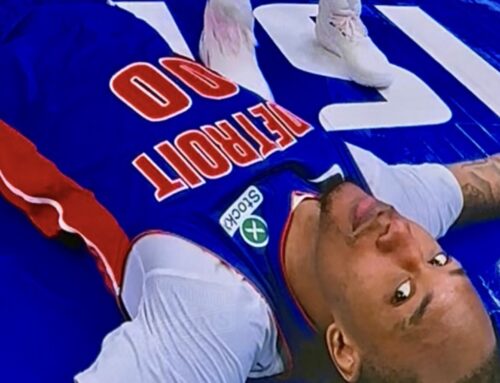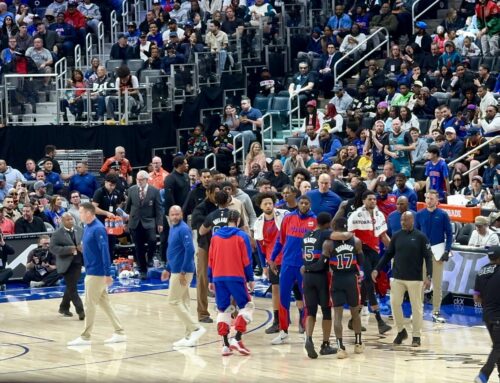Anxiety and mental health issues have long been stigmatized and misunderstood, especially in the world of sports. The Detroit Tigers have placed outfielder Austin Meadows on the 10-day injured list due to anxiety-related struggles. This marks the second time within seven months that the six-year MLB veteran has stepped away from the team to address his mental health.
With Meadows stepping away from the team due to anxiety, many fans have taken to social media to criticize and ridicule him. It’s time we recognize the seriousness of these struggles and support our athletes as fellow human beings, rather than just expecting them to perform for our entertainment.
The Dark Side of Fandom: Social Media Backlash
Despite the seriousness of the issue, the criticism of Meadows has been overwhelmingly negative. To attack another human just because he makes millions of dollars playing a sport is disheartening.
I implore those who have expressed negativity towards athletes like Meadows to take a step back and reevaluate their actions. These individuals are more than just athletes; they are human beings dealing with real-life struggles. As fans, we should be fostering a culture of empathy and understanding, rather than tearing them down when they open up about their battles.
Tigers manager A.J. Hinch emphasized the team’s full support for Meadows and acknowledged the importance of mental health, stating, “We’re thinking of him, fully supporting him and hoping for better times for him.”
A Supportive Organization: Tigers Stand Behind Meadows
Meadows spent the offseason working on his mental and physical health, hoping to navigate the 162-game schedule successfully. While there is no specific timetable for his return, the Tigers organization has shown unwavering support for Meadows.
Statement from Tigers President of Baseball Operations, Scott Harris – regarding Austin Meadows. pic.twitter.com/ucETzdAWJ4
— Tigers PR (@DetroitTigersPR) April 8, 2023
In a statement, Tigers president of baseball operations Scott Harris said, “The Tigers fully support Austin’s decision to step away from the team and prioritize his mental health. As an organization, we have taken many steps to provide and destigmatize mental health resources, and we will do more to help our players tackle the mental and physical challenges they face on a daily basis.”
Lessons from the World of Sports: The Rock, Kevin Love, and Dak Prescott
The stories of Dwayne “The Rock” Johnson, Kevin Love, and Dak Prescott serve as examples of athletes who have faced mental health challenges and have chosen to share their stories, providing context and understanding to those who may ridicule Austin Meadows.
Dwayne “The Rock” Johnson: Overcoming Adversity and Anxiety
Dwayne “The Rock” Johnson has shared his own experiences with anxiety and depression, proving that no one is immune to mental health struggles. Johnson’s openness has helped break the stigma that seeking mental health assistance isn’t masculine. In his hit sitcom “Young Rock,” Johnson showcases the importance of sharing his own story and its impact on breaking stereotypes.
Kevin Love: From Struggle to Advocacy
Kevin Love, who has dealt with social anxiety since childhood, has become the NBA’s unofficial mental health ambassador. Love’s openness and willingness to help others have brought him peace and encouraged others to “speak their truth.” He has written a powerful first-person essay for the Player’s Tribune detailing his lifelong battle with anxiety and depression titled, “Everybody’s Going Through Something.” In doing so, Love has paved the way for others to feel comfortable discussing their own mental health challenges.
Dak Prescott: Tackling Depression Head-On
Dallas Cowboys quarterback Dak Prescott opened up about dealing with depression following his brother’s suicide. Despite some criticism, the sports world rallied in support of Prescott, who singlehandedly broke the stigma surrounding mental health in the NFL. In an interview for “In Depth With Graham Bensinger,” Prescott spoke openly stating isolation due to quarantines exacerbated anxiety for him. “It creates new emotions — emotions that I’ve never felt before but obviously dealt with,” he said. “And I obviously got the help that I needed and was very open about it. I think that’s why I was fortunate enough to get over it, as not all of us are.”
Prescott received an outpouring of support from fans and teammates, but “Undisputed” host Skip Bayless criticized the two-time Pro Bowler and questioned Prescott’s ability to lead his team. Bayless said, “I don’t have sympathy for him going public with ‘I got depressed, I suffered depression early in COVID to the point that I couldn’t even go work out,’” Bayless said. “Look, he’s the quarterback of America’s team. You know and I know the sport that you play, it is dog eat dog. It is no compassion.”
The sports world was quick to rally in support of Prescott, who singlehandedly took away the stigma of depression and anxiety in the NFL. That, by definition, is anything but weak.
Empathy and Understanding: Supporting Our Athletes
While Austin Meadows is the latest professional athlete to openly admit his struggles and step away from his team, this is my plea to those reading: react as a human first before making brash statements as a fan expecting your athletes to put any personal issues or struggles behind them for wins. It is crucial to remember that athletes, like all of us, face mental health challenges and need our understanding and support.
Dak Prescott has been writing "Ask 4 Help" on his wrist tape as a reminder to those living with mental illness that their lives matter and they are not alone ❤️
Prescott has been open about his own experiences with anxiety and depression in the past.
(📸: @dallascowboys) pic.twitter.com/nDdf9j0Dgz
— NFL on ESPN (@ESPNNFL) October 19, 2021
The stories of The Rock, Kevin Love, and Dak Prescott serve as powerful reminders that mental health struggles do not discriminate. By sharing their stories, these athletes have shown courage and vulnerability, paving the way for others to seek help and support.
Resources and Support: You Are Not Alone
For anyone experiencing problems or interested in mental health issues, please visit the National Institute of Mental Health website by clicking this link.
For those in need of immediate help, call the National Suicide Prevention Lifeline at 1-800-273-TALK (8255).
It is time for all of us to acknowledge the importance of mental health and stand behind athletes like Austin Meadows in their battles. We must break down the stigma surrounding mental health issues, offer understanding, and extend our empathy to all those facing these challenges. Only then can we create a more compassionate and supportive environment for everyone, both on and off the field.
___
For more from the author Matt Broder, check him out on Twitter here: @mattbro21
Tweet: @WoodwoodSports or comment on your favorite social media platform!
The Woodward Sports Shop has ALL NEW Apparel – check it out here!
Photo Credit: © Reinhold Matay-USA TODAY Sports



